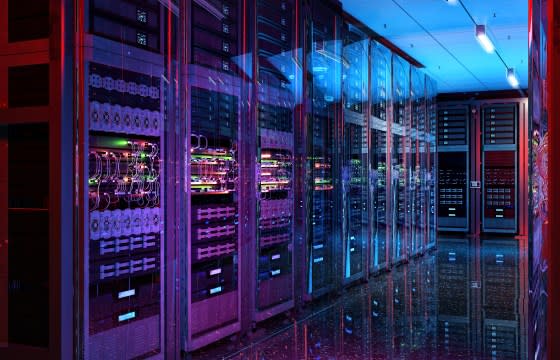How AI Is Jolting the Labor Force
The rapid advancement of artificial intelligence technology is causing disruption in the labor force. Many industries are implementing AI to automate tasks traditionally done by humans. This shift is leading to concerns about job displacement and the need for upskilling and retraining programs. As AI continues to evolve, it is important for policymakers and businesses to address the challenges posed by this technological transformation.

“Our GPUs are melting,” Sam Altman, CEO of OpenAI tweeted just days after the company released its news image generator to the public. He was celebrating the high demand for the product, and he later announced the company was discussing building its own data center. The world is learning in real time that AI is a transformational technology that brings with it new needs, particularly when it comes to U.S. infrastructure and our electrical grid.
Unfortunately for Altman, America might not be producing enough electricians to build and service the data centers that power AI. BlackRock CEO Larry Fink says he has “told the members of the Trump team that we’re going to run out of electricians as we build out AI data centers. We just don’t have enough.” These centers are a critical part of building America’s leadership in AI—and it’s not just about reimagining the cast of Friends as babies or creating images of Hank Hill as he might really exist.
Artificial intelligence has the potential to improve medical research and health care, help businesses increase productivity and save all types of workers countless hours on repetitive tasks. That makes the need for more electricians all the more acute. Politicians may look to subsidize more trade school capacity to train electricians, but there are simpler and more effective ways to address this need.
The Need for Reform
Like many professions, electricians are overregulated—and many of those regulations do little to protect consumers. Modest licensing reforms can ensure that AI data centers have the personnel they need. But until reforms are implemented, we can’t know how big the market for electricians is, and the effect of any subsidies would be held back by these constraints.
Current State of Licensing
Occupational licensing is handled in patchwork fashion in this country: Twenty states do not license electricians. In some states, licensing is handled at the local level—and some localities, such as Warwick Township in Pennsylvania, opt not to license them.
Assuming licensure improves safety, we should expect to see less harm in states with broader licensing requirements and more harm in states where localities can—but don’t always—opt for licensure. One study exploring those correlations and using data from the Bureau of Labor Statistics (BLS) showed no real difference in fatal incident rates between states that licensed electricians and those that didn’t.
Challenges and Solutions
A key problem here is license mobility which, for electricians, can be a particular nightmare. Electricians licensed in one state or city can’t just move—or even travel for temporary work—elsewhere, as many states lack a process for allowing occupational licenses to be recognized across state lines.
Finally, some states limit the benefits of license recognition to new residents (not visitors) of the state or don’t account for instances in which another state has no license for the profession whatsoever. The more limiting universal recognition is, the harder it will be for traveling electricians to practice.
HONESTAI ANALYSIS
Any training and licensing for electricians should be focused on the proven ability to reduce harm, not a false sense of security. Also, making small changes to universal licensing recognition laws—or even enacting them in the first place—will enable AI data centers to have access to the electricians they need. Further interventions may be necessary to increase the number of electricians who can benefit from this new work, but removing unnecessary barriers is a great place to start. In this case, occupational licensing reform is critical to America’s future and leadership in the AI race.

